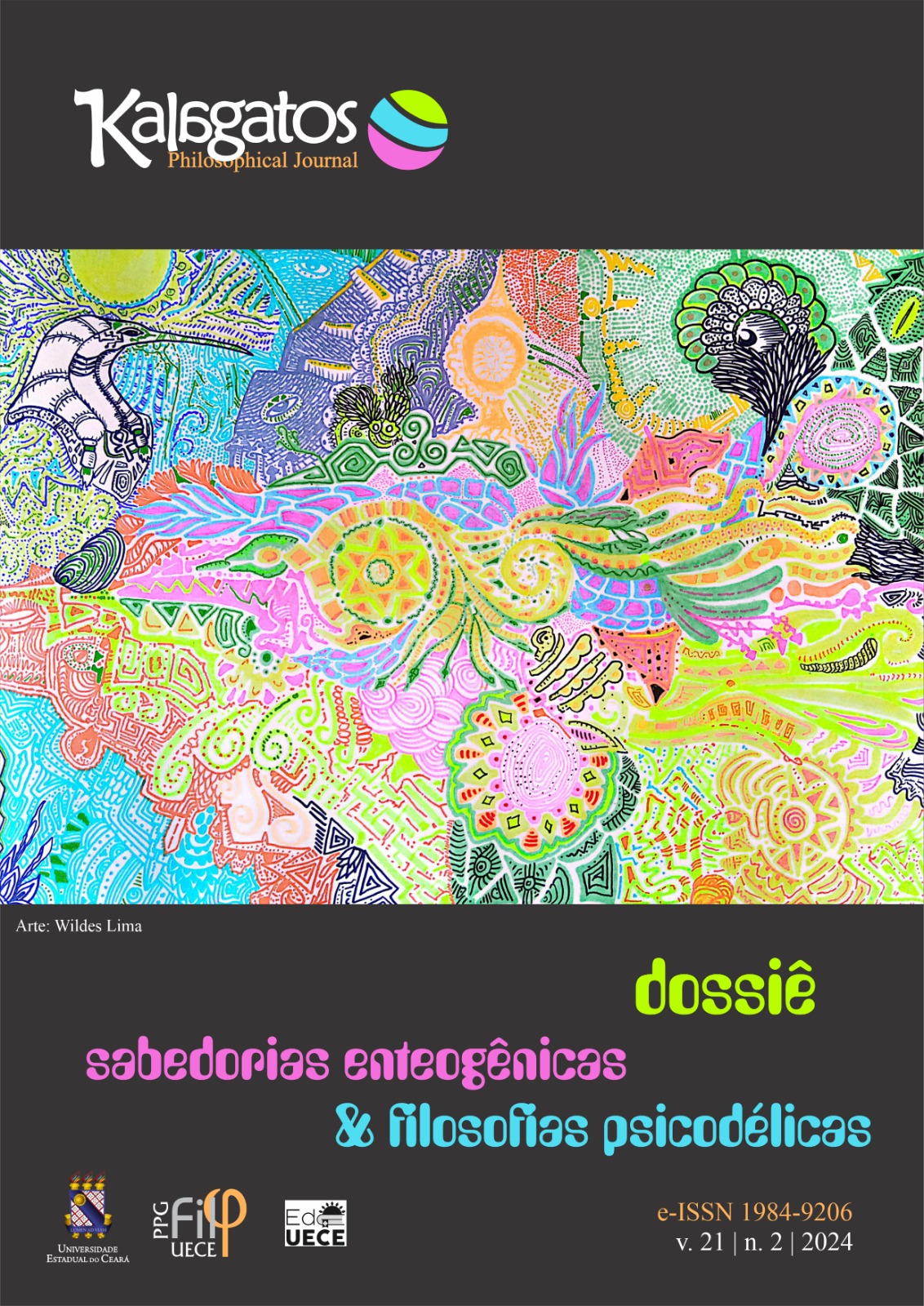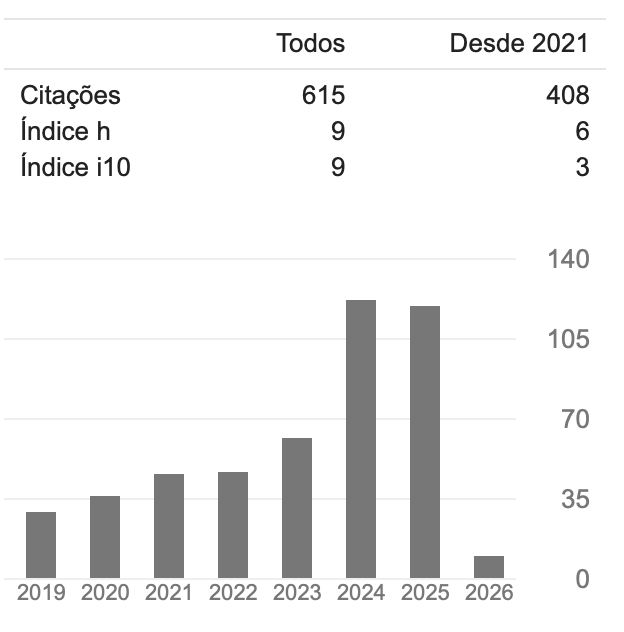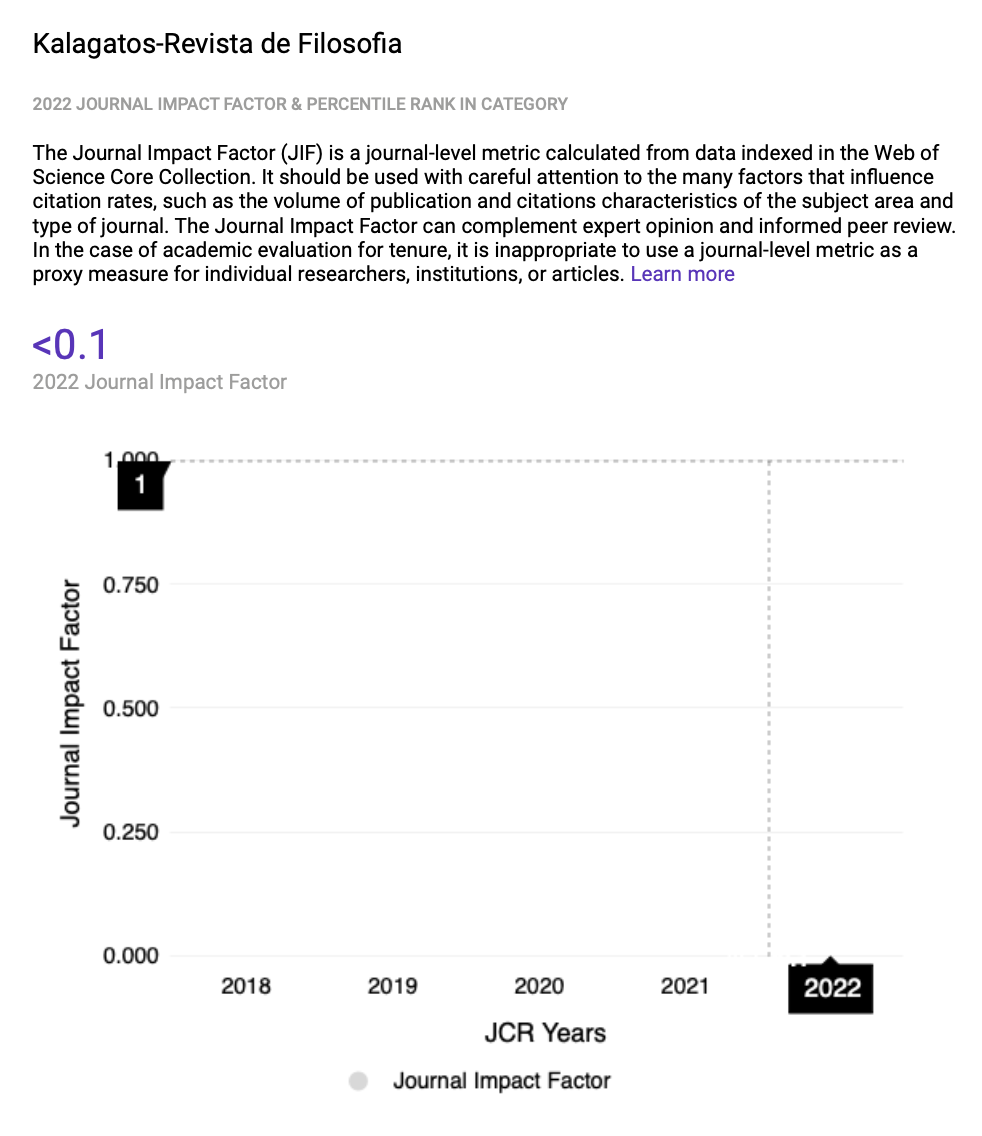Drives as Inverted Forms: A Comparison of Nietzsche’s and Socrates’s Philosophical Psychologies.
Palabras clave:
Drives, Socrates, Nietzsche, daimon, elenchus.Resumen
A recent paper by Tom Stern suggests that Socrates’s philosophical psychology, which emphasizes rational reflection, is superior to Nietzsche’s drive model when explaining human behavior. I argue that Stern’s analysis is wrong on three fronts. First, the models share common, though inverted, features. Second, Stern fails to consider the role of Socrates’s daimon when evaluating Socrates’s philosophy of mind; third, Nietzsche’s model is more warranted.
Descargas
Citas
Bibliography
Alfano, Mark. Nietzsche’s Moral Psychology, Cambridge University Press, 2019.
Maudemarie Clark and Dudrick, David. The Soul of Nietzsche’s Beyond Good and Evil, Cambridge, Cambridge University Press, 2012.
Devereaux, Daniel, T. “The Unity of the Virtues in Plato's Protagoras and Laches”, The Philosophical Review, Vol. 101, No. 4 (Oct., 1992), pp. 765-789.
Douven, Igor, "Abduction", The Stanford Encyclopedia of Philosophy (Summer 2021 Edition), Edward N. Zalta (ed.), URL = <https://plato.stanford.edu/archives/sum2021/entries/abduction
Huby, Pamela. “Phaedo 99 D-102 A” Phronesis, Vol. 4, No. 1 (1959), pp. 12-14
Jetli, P. “Deduction–Abduction–Induction Chains in Plato’s Phaedo and Parmenides”, In: Magnani, L. (eds) Handbook of Abductive Cognition. Springer, Cham.
Katsafanas, Paul. “Nietzsche’s Philosophical Psychology”, in K. Gemes and J. Richardson (eds.), The Oxford Handbook of Nietzsche (Oxford: Oxford University Press), 2013, 726–55.
Katsafanas, Paul. The Nietzschean Self: Moral Psychology, Agency and the Unconscious, New York: Oxford University Press, 2016,
Kraut, R. 1981. “Plato’s Apology and Crito: Two Recent Studies” Ethics, 91: 651-664 McPherran, M. 1996. The Religion of Socrates. University Park: The Pennsylvania State University Press
Leiter, Brian. “The Paradox of Fatalism and Self-Creation in Nietzsche,” in Willing and Nothingness: Schopenhauer as Nietzsche’s Educator, ed. Christopher Janaway Oxford: Clarendon, 1998
Marcuse, Herbert. Eros and Civilization, 2nd edition. Boston: Beacon P, 1966.
McPherran, M. The Religion of Socrates. University Park: The Pennsylvania State University Press, 1996.
Mele, Alfred. “Akrasia, “Self-Control, and Second-Order Desires”, Noûs Vol. 26, No. 3 Sep.1992.
Nietzsche, Friedrich. Beyond Good and Evil in Basic Writings of Nietzsche. Trans. Walter Kaufmann. Intro. Peter Gay. New York: Random House, 2000
Nietzsche, Friedrich. Human all too Human. Trans. R.J. Holingdale. Intro by Richard Schact. Cambridge University Press: 1996.
Nietzsche, Friedrich. The Gay Science. Trans. Walter Kaufmann. New York: Vintage Books, 1974.
Nietzsche, Friedrich. On the Genealogy of Morals in Basic Writings of Nietzsche. Trans. Walter Kaufmann. Intro Peter Gay New York: Random House, 2000.
Nietzsche, Friedrich. Twilight of the Idols/The Anti-Christ. Trans. R. J. Hollingdale. Harmondsworth, Middlesex: Penguin, 1972.
Nietzsche, Friedrich, The Will to Power. Trans Walter Kaufmann and R.J. Holingdale. Vintaget Books 1970.
Nussbaum, Martha. “Introducing a New God: Socrates and His Daimonion Commentary on Edmunds.” Proceedings of the Boston Area Colloquium of Ancient Philosophy 1: 231-240, 1985.
Panksepp, J. (1998). Affective Neuroscience: The Foundations of Human and Animal Emotions. New York, NY: Oxford University Press.
Panksepp, J. (2011). Cross-species affective neuroscience decoding of the primal affective experiences of humans and related animals. PLoS ONE 6:e21236. doi: 10.1371/journal.pone.0021236
Panksepp, J., Normansell, L., Cox, J., and Siviy, S. (1994). “Effects of neonatal decortication on the social play of juvenile rats.” Physiol. Behav. 56, 429–443. doi: 10.1016/0031-9384(94)90285-2
Panksepp, J. B., and Huber, R. (2004). Ethological analyses of crayfish behavior: a new invertebrate system for measuring the rewarding properties of psychostimulants. Behav. Brain Res. 153, 171–180. doi: 10.1016/j.bbr.2003.11.014
Panksepp, J., and Yovell, Y. (2014). Preclinical modeling of primal emotional affects (Seeking, Panic and Play): gateways to the development of new treatments for depression. Psychopathology 47, 383–393.
Plato, Apology. Plato the Complete Works ed. John M. Cooper Trans. G.M.A Grube, Indianapolis: Hackett Publishing 1997
Plato, Gorgias. Plato the Complete Works ed. John M. Cooper Trans. Donald Zeyl. . Indianapolis: Hackett Publishing 1997.
Plato, Phaedo in Plato the Complete Works, ed. John M. Cooper, trans. Stanley Lombardo and Karen Bell Indianapolis: Hackett Publishing, 1997.
Riccardi, Matta. “Virtuous Homunculi: Nietzsche on the Order of Drives”, Inquiry an International Journal of Philosophy, 61 (1) 21-41 2018
Riccardi, Mattia. Nietzsche’s Philosophical Psychology Oxford: Oxford University Press, 2021.
Richardson, John. Nietzsche’s New Darwinism. Oxford University Press, 2004.
R o b in s o n , Plato's Earlier Dialectic (Ithaca, New York: Cornell University Press, 1941). 56- 57.
Wilfrid Sellars, Science, Perception and Reality London: Routledge and Kegan Paul, 1963.
Stern, Tom. “Against Nietzsche’s ‘Theory’ of Drives” Journal of the American Philosophical Association Vol 1. Issue 1 Spring (2015) 121–140.
Stovall, Preston. The Single-Minded Animal: Shared Intentionality, Normativity, and the Foundations of Discursive Cognition, New York: Routledge, 2021
Van Riel, Gerd. “Socrates' Daemon: Internalisation of the Divine and Knowledge of the Self”, Apeiron: A Journal for Ancient Philosophy and Science , June 2005, Vol. 38, No. 2 31-42, 38.
Welshon, Rex. Nietzsche’s Dynamic Metapsychology: This Uncanny Animal New York: Palgrave 2014.
Work by author of paper ____2013
Work by author of paper______2017
Work by author of paper_______2019
Work by author of paper_______2021
Work by author of paper________2023.
Descargas
Publicado
Cómo citar
Número
Sección
Licencia
Derechos de autor 2024 Brian Lightbody

Esta obra está bajo una licencia internacional Creative Commons Atribución 4.0.



















